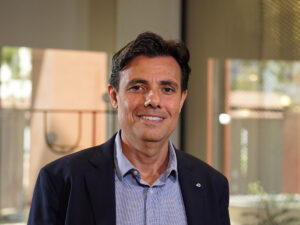Operations to drive sustainability rife with growing talent gaps
For productivity and efficiency, UAE energy and manufacturing enterprises must look to their people for inspiration, ingenuity and talent, advocates Ahmad El Dandachi, Enterprise Commercial Lead, Microsoft UAE.
The UAE manufacturing and energy sectors are undergoing profound and transformational changes in their operations to drive sustainability and to balance efficiency with growing talent gaps. Digital transformation is assuming its traditional role on the factory floor and along the supply chain, but as every successful CIO knows, technology is but a term in a formula that includes many others – people, most of all.
The UAE government is determined to leverage the country’s industrial base in its economic diversification efforts. Leaders here want to see a globally competitive, productive, and sustainable sector built on Industry 4.0 technologies.
Operation 300bn, for example, is aimed at raising the sector’s contribution to GDP from AED 133 billion to AED 300 billion by 2031. Feeder programmes such as ‘Dubai Industrial Strategy 2030’ and ‘Abu Dhabi Industrial Strategy’ put revenue growth and business continuity front and centre.

Struggle
However, if such goals are to be met, enterprises must be able to draw on the commitment of their field workforces who, according to a recent Microsoft-sponsored IDC study, are struggling with engagement.
Field personnel, frontline workers, ‘the deskless workforce’ number some 427 million worldwide in the manufacturing sector, and during the pandemic, they strengthened vital links in supply chains by working extra hours at great personal risk.
IDC’s ‘Empowering Field Workers in the UAE Manufacturing and Energy Industry’ report, for which both field workers and their line managers were interviewed, revealed a third (66%) of field employees were enduring long working hours and rigid schedules and that this was resulting in workforce attrition. This constitutes a challenge for an industry that is looking to contribute more to GDP.
Some 78% of field workers believed technology could be the answer to many of their problems, allowing them to do their job more effectively and engage more meaningfully with their organization. What is even more interesting is that between 92% and 97% of production and supply-chain managers in the same organisations agreed that technology could help the field workforce.
Deskless workforce
The UAE’s deskless heavy-industry workforce even had pointers for which areas of the business should be prioritised for digital transformation. Almost half (47%) chose task and workflow management, scheduling and approvals, and the same percentage picked out automation.
An IDC HR Managers Survey from November 2022 showed 27% of UAE manufacturing and energy-sector employees currently work remotely at least some of the time, but the reliance on large field workforces excludes other workers from flexible work conditions.
As their roles continue to become more challenging, field employees remain underserved by digital transformation programmes, which tend to target quick wins for the back-office (and now, work-from-home) employee. If this situation persists, we can expect attrition to do so as well.
To engender a culture of engaged and committed workers, IDC’s whitepaper suggests the introduction of digital tools that allow field staff to not only be more productive but to learn and grow within their roles. This would need to be supplemented with commitments from enterprises on training, but the dividends would be productivity, efficiency, innovation, and competitiveness.
